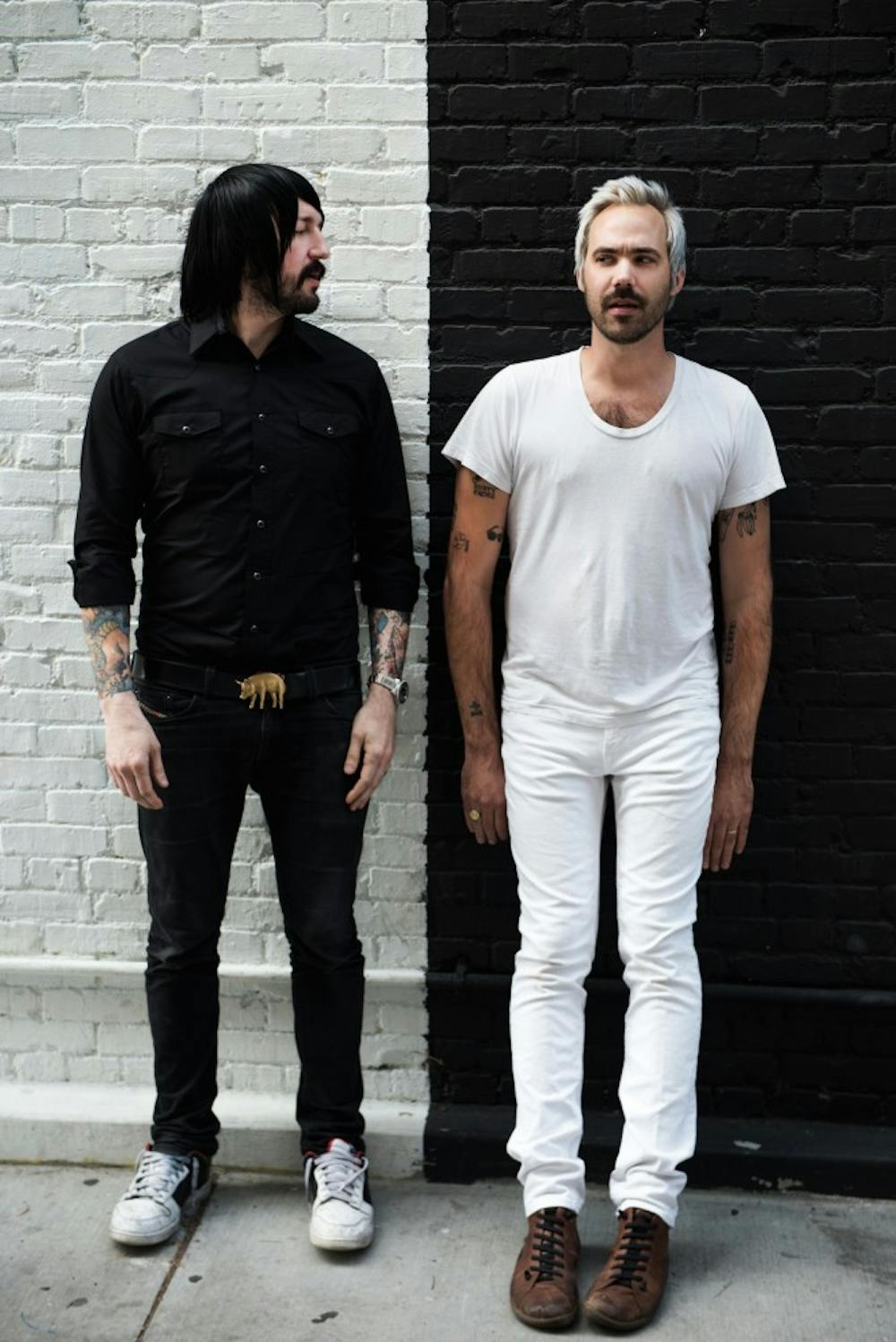Death From Above is a punk and dance rock duo from Toronto featuring vocalist and drummer Sebastien Grainger and bassist Jesse F. Keeler. Grainger is a 38-year old industry veteran whose discography spans many bands, genres and moods. Apart from singing and playing drums for the band, Grainger also writes lyrics and arranges songs. Grainer’s attention to detail, skill and willingness to experiment shines on his latest album, “Outrage Now!”
Death From Above is gearing up to go on tour this fall behind the new album, with a stop at the Fillmore in Silver Spring on Oct. 28. The Eagle interviewed Grainger ahead of his tour. The interview has been edited for clarity and length.
EAGLE: What was the thinking behind the short promotional notice before you dropped the album?
SG: The music industry is basically the Wild West. It’s liberating to not have to adhere to arbitrary rules that were set up for former specific purposes. There isn’t any huge theory behind what we did, it was a matter of the record was produced quickly and the turnaround between finishing it and releasing it was pretty fast. I don’t think it made sense to just talk about it when we finished back in April. Everyone’s always exposing themselves on social media constantly, telling you how to feel, telling you how to eat, the cool thing that their dog did. We are living through a time where there is this extreme narcissism that everyone has, declaring themselves onto the world all the time.
EAGLE: What did Eric Valentine, the producer, bring to this album that you couldn’t find elsewhere?
SG: He’s a technical master. Sometimes the technical aspect can get in the way of making a record, but not with him. Sometimes when you have an idea that takes an hour to get the sound that you want, or takes an hour to get the right microphone placement, by the time you’re playing. By the time you’re playing, that creative idea has disappeared or it’s been tampered down.
Sometimes, the producer will want to put their ideas on the record, which is cool, and that happened too, but his mode is to always prefer our instinct and ideas. There’s a part on every song of the record where he does an original thing that he had never done musically or technically, or even a little percussion thing that we did. The little thing that we hit had never been hit before, which is kind of the spectrum of the weirdness that we brought. Making music all night long and sleeping in and listening to the crazy thing I had recorded the next day is exhilarating.
EAGLE: As a drummer, who was your main influence for this album, who hadn’t really left a mark on you previously?
SG: I don’t know if there’s a drummer that I was inspired by. But the beats, they’re kind of like funk beats, like something that you would hear on a James Brown album. It’s kind of a slowed down breakbeat. That’s something that was almost taboo back in the day. There was kind of a standard. I don’t know where it came from or why we imposed this on ourselves, but there were certain drum fills that I wouldn’t even dare to play. It was this kind of unspoken, almost snobbery, and that didn’t exist on this record. If it sounded cool, it sounded cool. If the beat was circular and funky, that was fine. In the end it makes it more fun for me to play.
EAGLE: How did you approach the hooks differently on this album?
SG: We had this one kind of binding principle. Part of what we wanted to do was to make a record that sounded like a greatest hits record. Short songs, concise songs with hooks, and also we were more into giving things their own space. That came from listening to Queen and thinking about what they did, where you have this tremendous band and singer and they never feature together. Freddy Mercury does his thing and Brian May does his thing and they’re never competing. So, we decided that we would try and separate the performances a bit in the arrangement on this record. For my writing, I did a lot of it sitting at a piano. I was paying attention to every part of the melody when I was writing. Even if I kind of improved a rudimentary melody, on a demo, I would explore it further on the piano so that I could add more interesting parts to it.
EAGLE: In a fight between your band, Royal Blood, and The Black Keys, who would win?
SG: Well, we’re bigger than all of them. The drummer from Black Keys, Patrick Carney, is pretty tall and lanky, so I think if we bowled him over he would break in half. I think the singer (Dan Auerbach), is a little bit scrappy because he’s pretty self-conscious. I think that would be to his detriment. I think the drummer in Royal Blood is kind of like a bowling ball, he could knock a couple people over. We’re one of the tall bands. We’re 6’3 and 200 pounds each. And we used to push people around on tour. I think we’re better rehearsed for that victory.





